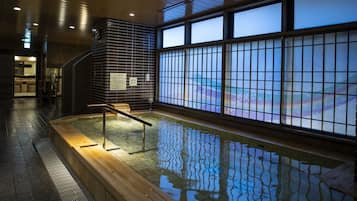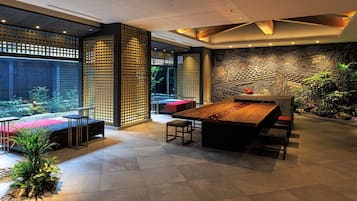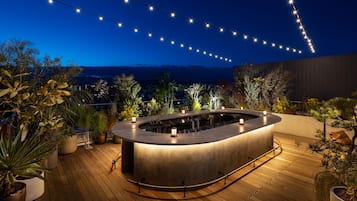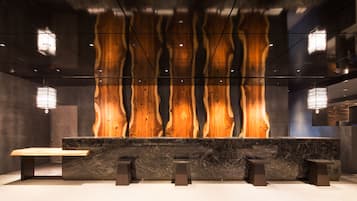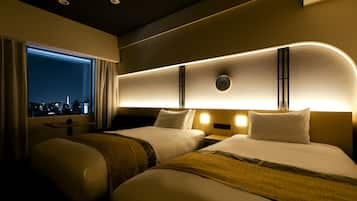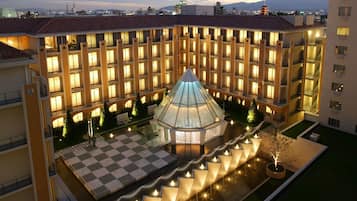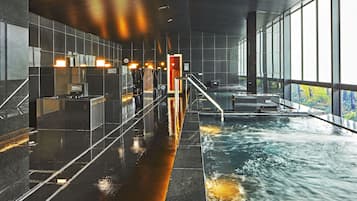Popular festivals and events deeply rooted in the region keep alive the culture of the ancient city of Kyoto. Seasonal festivals encapsulate the history of the imperial family, the shogunate, and the Sengoku warlords, including temples and shrines. These festivals bring tradition into the present, telling stories of how the people overcame war, great fires, and the turmoil during the war.
The city comes alive in different ways throughout the year, feeding off the cherry blossoms in spring, lush green colours in early summer, sunshine in midsummer, cool breezes in autumn, and finally the cold of winter. You'll definitely want to add some traditional events to your itinerary of temples, shrines and gastronomy. Memorable scenes and encounters await.
- 1
Gion Festival
Gorgeous festival floats are a highlight of summer sightseeing in Kyoto

- Budget
- Couples
- Families
- History
Gion Festival is a traditional event of Yasaka Shrine and is considered to be among Japan’s 3 major festivals along with Kanda Festival in Tokyo and Tenjin Festival in Osaka. Events carry on almost every day throughout July. One of the standouts is the parade of floats called Yamaboko, which are decorated with extravagant ornaments. Unique Yamaboko from each town parade between the streets of Shijo-dori and Kawaramachi-dori while the sound of Japanese traditional musical instruments accompanies the countless float-pushers.
This festival originated as a purification ritual to eliminate the plague caused by an epidemic. It’s still connected to people’s wishes and prayers down to this day.
Location: 625 Gionmachi Kitagawa, Higashiyama-ku, Kyoto City, Kyoto Prefecture 605-0073, Japan
Open: July
Phone: +81 (0)75-561-6155
Map - 2
Aoi Festival
Watch a procession of 500 people recreate the Heian aristocracy's grandeur

- Budget
- Couples
- Families
- History
Aoi Festival is one of the 3 major festivals in Kyoto and it’s also the oldest. The parade that starts from Kyoto Imperial Palace is held on 15th May and works its way towards Shimogamo Shrine before heading to Kamigamo Shrine. This long parade is led by cavalry, followed by ladies of the court carrying umbrellas with floral decorations, the palanquin carrying an unmarried female called Saio-Dai (the festival princess) wearing twelve-layered ceremonial kimono, and ox carts, producing a spectacle like a moving picture scroll from the Heian period.
This is your chance to dive into the world of the Tale of Genji and experience the atmosphere of the ancient capital. Also check out the solemnly performed Shinto rituals such as horse races and mounted archery.
Location: 339 Kamigamo Motoyama, Kita-ku, Kyoto City, Kyoto Prefecture 603-8047, Japan
Open: May
Phone: +81 (0)75-781-0011
Map - 3
Jidai Festival
An impressive parade filled with Kyoto history and tradition

- Budget
- Couples
- Families
- History
Jidai Festival is held at Heian Jingu Shrine on the 22nd October and is one of the 3 major festivals in Kyoto. A large parade of people with costumes and ritual implements from each period, prepared by masters in different fields using traditional craft techniques after painstaking research, marches through the city to bring 1,000 years of Kyoto history to life.
Around 2,000 people perform scenes from the Heian period to Medieval times, the Early Modern era, and the Meiji Restoration period. The women’s parade of the Edo, Medieval, and Heian periods in the geisha district is a festival highlight. Kyoto residents come together to liven up the festival and pray for the prosperity of Kyoto and for world peace.
Location: 97 Okazaki Nishitennocho, Sakyo-ku, Kyoto City, Kyoto Prefecture 606-8341, Japan
Open: October
Phone: +81 (0)75-761-0221
Map - 4
Oka Festival
A period procession under the cherry blossoms

- Budget
- Couples
- Families
- History
Oka Festival is celebrated at Hirano Shrine, which has always been famed for its cherry blossoms, and the portable shrine parade adds colour to Kyoto in springtime. Around 200 people take part in the gorgeous period procession of cavalry and weaving young ladies passing in front of Kitano Tenmangu Shrine, Hakubaicho Station, and Kinkakuji Temple.
Under the cherry blossoms in full bloom, as the party mood peaks, the stalls along the approach of the shrine are crowded with people out to have a great time. Throughout the cherry blossom season, you can also enjoy the illuminated night cherry blossoms after sunset.
Location: 1-banchi Hirano Miyamotocho, Kita-ku, Kyoto City, Kyoto Prefecture 603-8322, Japan
Open: 10th April
Phone: +81 (0)75-461-4450
Map - 5
Miyako Odori
Geisha depict Japan's four seasons with dance and live music

- History
Miyako Odori is a traditional dance event that began in the Meiji period and is performed throughout April in Gion, Kyoto. First shown at the Kyoto Exhibition, the performance of maiko (apprentice geisha) and geiko (female Japanese performing artists, also known as geisha), who danced beautifully in gorgeous kimono, earned rave reviews from an international audience and made the geisha culture of this district known to the whole world.
It was also well received by many cultural figures in Japan, leading to the creation of many famous stages with their support. Gion Kobu Kaburenjo Theatre, which was used as a venue for a long time, is registered as a tangible cultural property. The women shouting “Yoiyasa!” at this event make the spring in Kyoto even more cheerful.
Location: 570-2 Gionmachi Minamigawa, Higashiyama-ku, Kyoto City, Kyoto Prefecture 605-0074, Japan
Open: April
Phone: +81 (0)75-541-3391
Mapphoto by https://www.flickr.com/photos/72859063@N00/2936949899 (CC BY 2.0) modified
- 6
Daimonji
Kyoto's summer tradition to conclude Obon Festival

- Budget
- Couples
- Families
- History
Daimonji is the festival of bonfires that light up the summer night in Kyoto on 16th August at the peak of Obon. It signifies that the spirits who visited during Obon are sent back to the spirit world. These spectacular bonfires are said to have been held in various places in Kyoto since ancient times, but today they’re held only on 5 mountains, the most famous of which is the Daimonji bonfire on Mt. Nyoigatake.
The view of the huge “dai” kanji character lit up on Higashiyama is quite incredible. This is followed by the characters “myo” and “ho” on Nishiyama and Higashiyama at Matsugasaki, the shape of a boat on Nishigamo, the character “dai” again on Mt. Daihoku, and the shape of a shrine gate on Saga, surrounding the city of Kyoto.
Location: 1 Jodoji Nanamawaricho, Sakyo Ward, Kyoto City, Kyoto Prefecture 606-0000, Japan
Open: 16th August
Map - 7
Toka Ebisu Festival
A festival to pray for blessings at the beginning of the year

- Budget
- Couples
- Families
- History
Toka Ebisu Festival is held around 10th January, which is said to be the date of birth of Ebisu, a god of business prosperity for merchants, fondly known as Ebessan in the Kansai area. The famous Toka Ebisu Festival, held at Kyoto Ebisu Shrine, is commonly known as Hatsu Ebisu.
After visiting the shrine, you can receive a lucky branch of bamboo and choose a lucky charm to decorate with a wish you want to come true. During the festival, there’s also an event where visitors receive lucky bamboo branches from the actresses of Toei studio and maiko from Gion. Other highlights include the kagura dance dedication at Kaguraden and the Hoekago Parade, in which the actresses of Toei studio again take part.
Location: 125 Komatsucho, Higashiyama-ku, Kyoto City, Kyoto Prefecture 605-0811, Japan
Open: January
Phone: +81 (0)75-525-0005
Map - 8
Setsubun Festival
Welcome the New Year by warding off bad luck

- Budget
- Couples
- Families
- History
Setsubun Festival is a traditional event held throughout Japan, but the version they put on at Yoshida Shrine in Sakyo-ku, Kyoto, is particularly famous. Huge crowds gather for the 3 days of this spectacular festival, which features about 800 stalls and has been held ever since the Muromachi period.
On the day before Setsubun, and after Ekijin Festival, a Shinto ritual called Oniyarai, which has been practised since the early Heian period, is held in the Imperial Court to drive away evil spirits. On the day of Setsubun itself, old amulets and charms are burnt at Karo Festival. Try your luck with the lottery tickets that are distributed with beans.
Location: 30 Yoshidakaguraokacho, Sakyo-ku, Kyoto City, Kyoto Prefecture 606-8311, Japan
Phone: +81 (0)75-771-3788
Map - 9
Yabusame Shinji
Watch an awesome display of horseback archery

- Budget
- Couples
- Families
- History
Yabusame Shinji is a mounted archery event held on 3rd May as a ritual before the Aoi Festival of Shimogamo Shrine. You can watch archers in traditional costume and manner on running horses, continuously shooting arrows at 3 targets placed at 100-metre intervals.
The riding ground in the forest is refreshing and complements the archers who ride the horses. It’s difficult not to be impressed by the gallantry of these athletic archers. There’s a real buzz to this event, especially when the arrows strike the bullseye. The targets that were hit are later sold as lucky charms.
Location: 59 Shimogamo Izumikawacho, Sakyo-ku, Kyoto City, Kyoto Prefecture 606-0807, Japan
Open: 3rd May
Phone: +81 (0)75-781-0010
Map - 10
Arashiyama Hanatoro
A festival of light and flowers during Kyoto's winter nights

- Budget
- Couples
- Families
- History
Arashiyama Hanatoro is held at Arashiyama, a town popular with tourists for its rich natural environment and quiet atmosphere. In December, check out the fantastic scenery of Togetsukyo Bridge and Katsura River as they're lit up in the darkness of the night.
The illuminations continue all the way to Kameyama Park, Ogura Pond, Chojin no Mori, and the bamboo grove pathway. Japanese flower arrangements are displayed on the streets, again lit up with illuminations. The same event is also held in Higashiyama and Saga.
Location: Ukyo-ku, Kyoto City, Kyoto Prefecture 616-0007, Japan
Open: December
Phone: +81 (0)75-212-8173
Map




